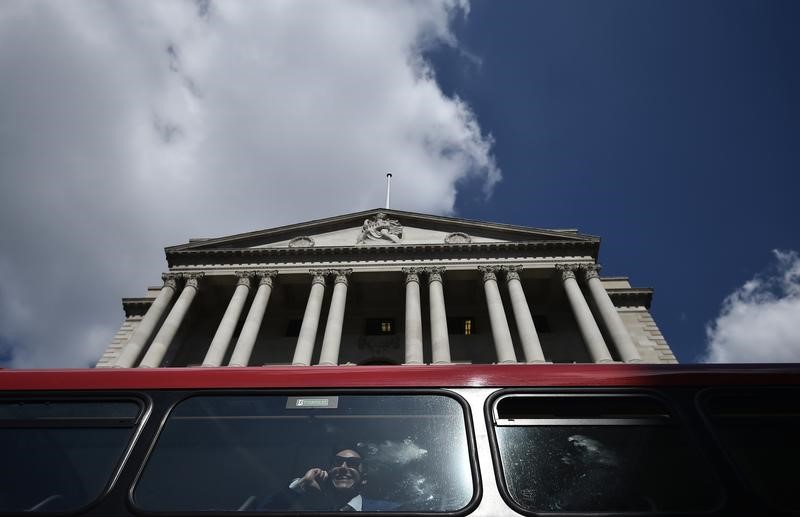LONDON (Reuters) - The Bank of England is expected to publish measures on Tuesday to correct "weaknesses" it has uncovered in how banks have been doling out credit to consumers at a rapidly expanding pace.
It is the latest sign of how consumer credit, a key driver of economic growth, has risen up the watchlist of regulators at a time when savings are hitting their lowest levels in at least 50 years and the BoE's policymakers are split over whether to raise rates as inflation climbs.
The BoE said last week that a targeted review by its banking supervisory arm, the Prudential (LON:PRU) Regulation Authority (PRA), had found weaknesses in some aspects of underwriting credit and a reduction in the resilience of banks.
On Tuesday, the PRA will make a statement on its first set of specific actions or "expectations" from the banks it regulates regarding credit to consumers. It will look at a wide range of credit, including the financing of car purchases - though banks now account for a much smaller portion of this than in the past.
"Effective governance at firms should ensure that risks are priced and managed appropriately and benign conditions do not lead to complacency by lenders," the BoE said last week in its twice-yearly Financial Stability Report.
The BoE noted in the report that losses for banks from consumer loans defaulting are far higher than in the home loans sector, though they remain low overall.
At the same time, the amount of capital that banks are setting aside against exposure to consumer credit has fallen since 2014, meaning lenders have less capacity to absorb losses.
The BoE also said last week that it was bringing forward to September from November the assessment of stressed losses in consumer credit lending in this year's annual "stress test" of top banks.

Last week, Britain's Financial Conduct Authority said it was taking a close look at lending practices in the fast growing car financing sector.